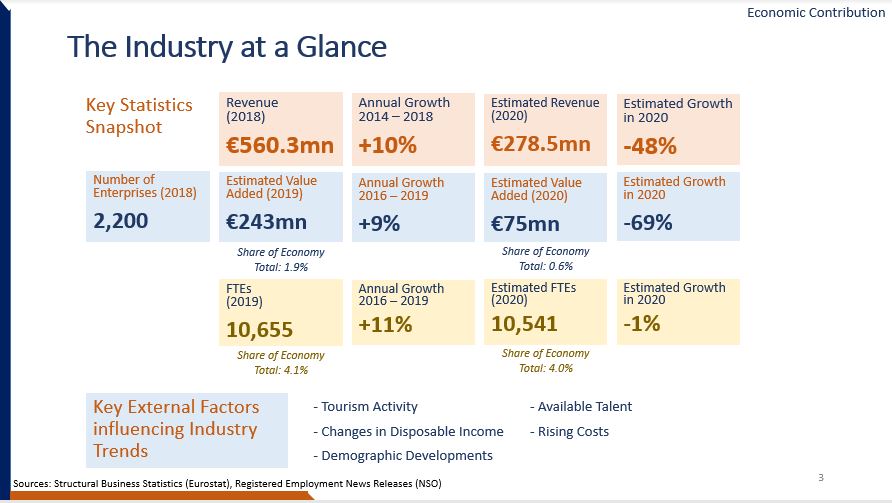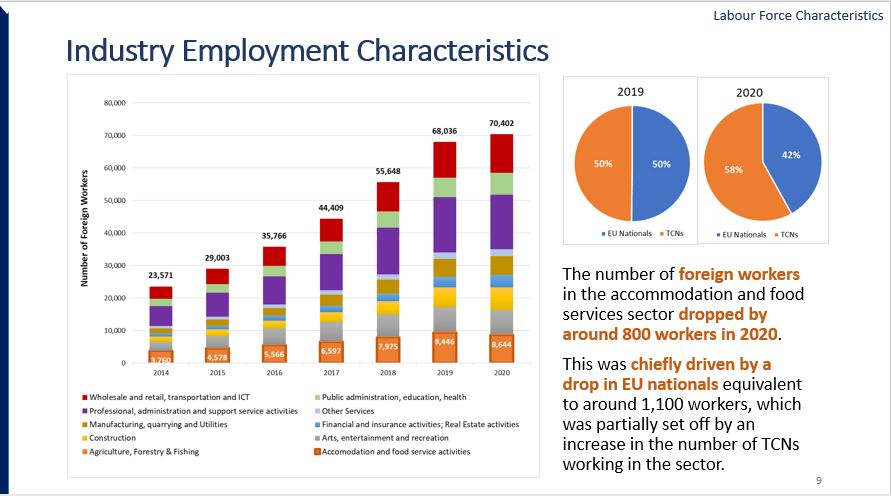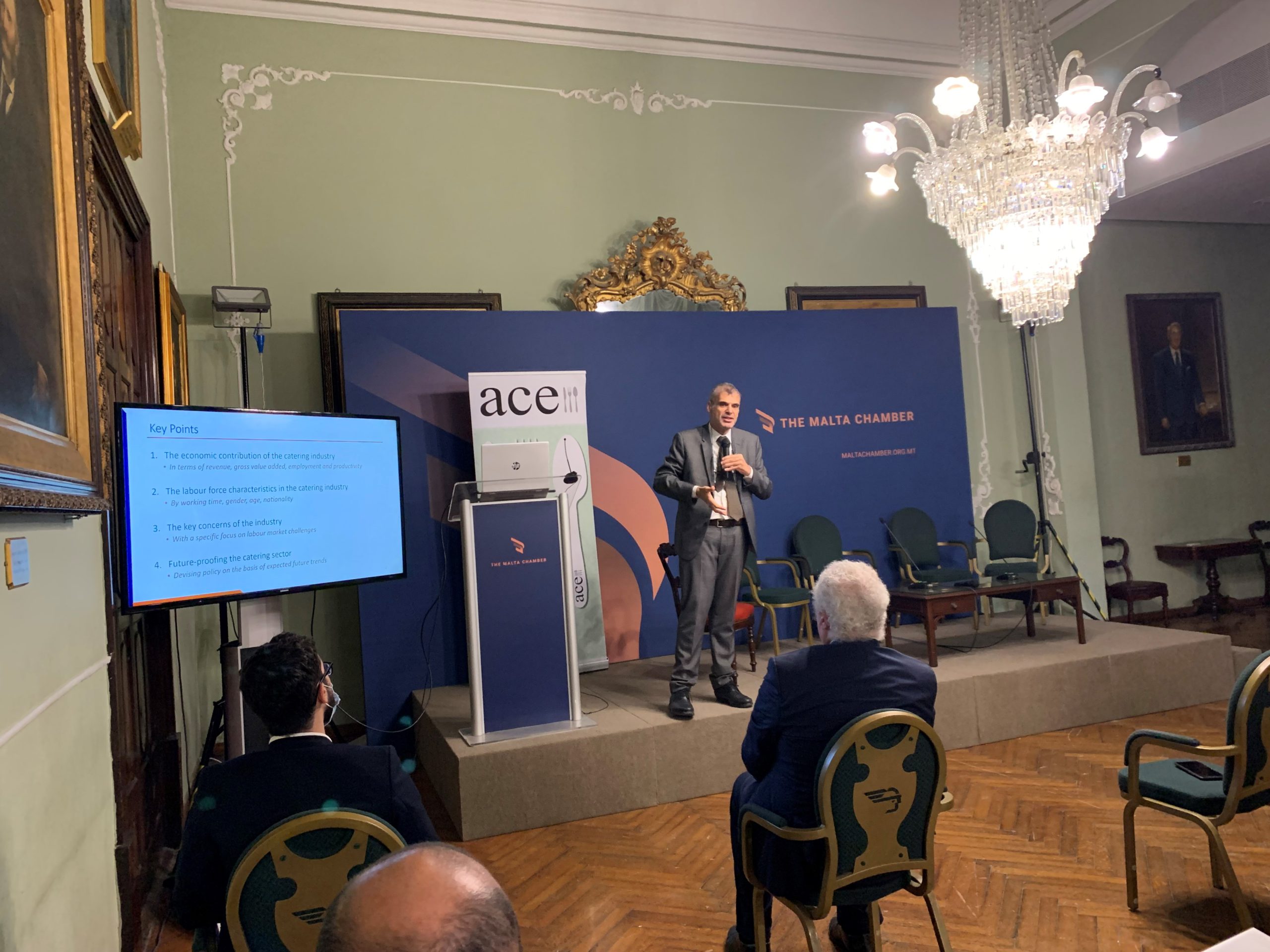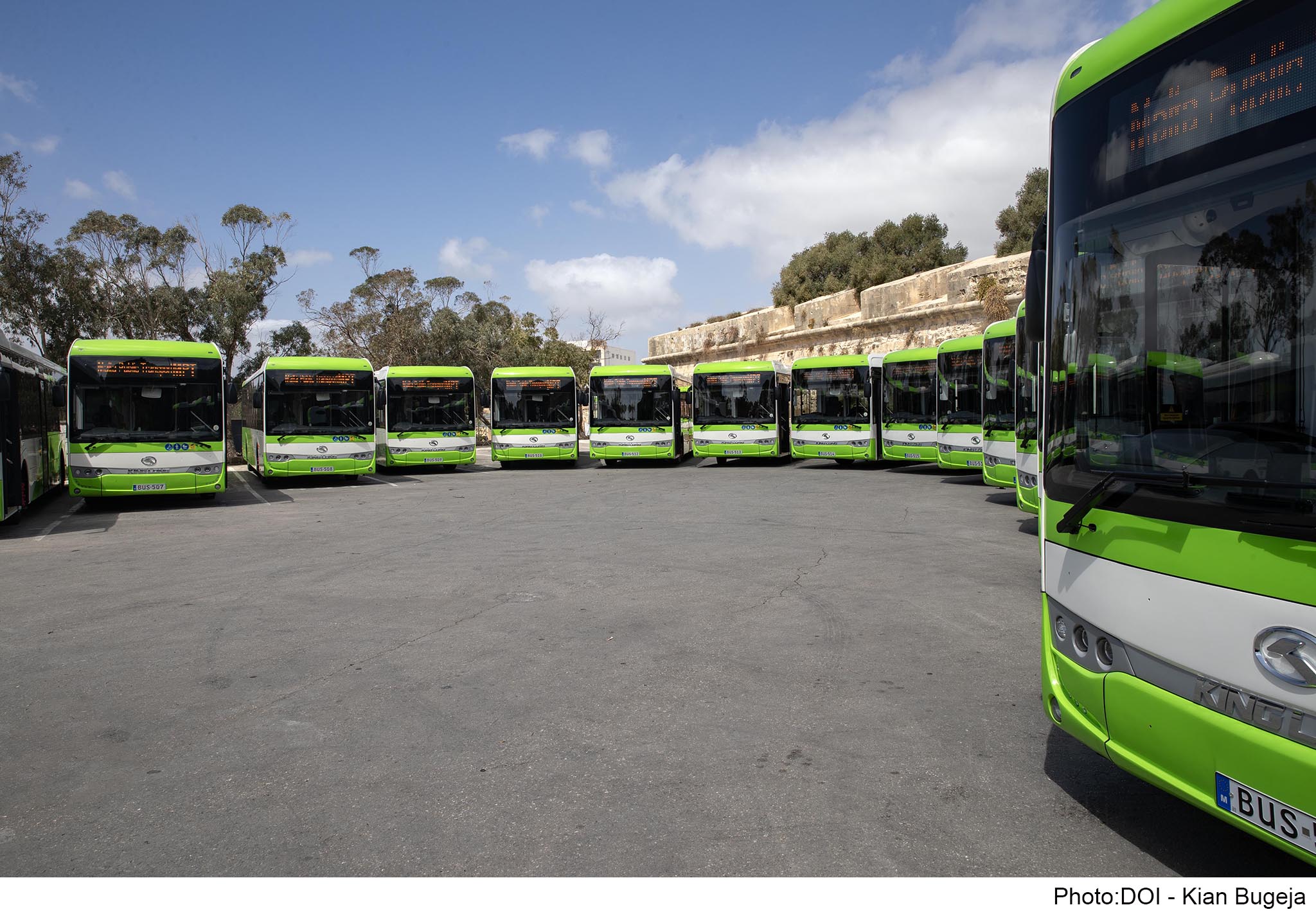A lack of willingness of locals to work in the catering industry, and a resulting pertinent need for further efforts to attract younger generations to the sector, was a landmark finding of a study on the trends shaping the sector, and what to expect for the future.
The study, conducted by E-Cubed Consultancy, and headed by prolific local economist Gordon Cordina, was presented at a conference organised by the Association of Catering Establishments, in partnership with BusinessNow.mt.
For months now, countries around the world have decried a serious lack of available workers in catering and hospitality, with Malta failing to escape the trend. The pandemic, which led to serious limitations on the ability to do business, has caused several foreign workers to return to their country of origin, while others are opting to pivot towards industries less vulnerable to pandemic-related shocks.
The study confirmed a lack of available talent and the threat of skilled personnel migration from tourism to other economic sectors. This reality is being felt heavily on the ground, with Dr Cordina’s study confirming the sentiment.
“We need to stop looking at the here and now, and invest in training and skill development for employees in the sector, looking at longer-term prospects,” Dr Cordina says.
It also found that it is imperative for the sector to maintain and improve standards across the industry, where emphasis should be laid on greater investment in training.

A look at the key figures underpinning the industry found that the sector contracted by a shocking 48 per cent in 2020, in terms of revenue.
A dependence on foreign workers has translated into the catering industry being more vulnerable to adverse economic shocks, while local diners may not accept foreign languages during their dining experience.
From business owners’ perspective, rising costs are dampening efforts to meet challenges, with higher freight charges on the importation of goods, rising labour costs caused by the shortage of workers and an increased price for raw materials.
Industry contribution to value-added
The study found that pandemic restrictions led to a significant decline in the sector’s value-added in 2020. This is also evident from the drop in households’ consumption on restaurants and hotels.
In 2021, the accommodation and food services sector started rebounding and has been a strong driver to post-pandemic recovery, with the GVA of the sector recording a 165% increase in 2021Q2, when compared to the same quarter in 2020.

Dr Cordina, based on findings on productivity within the catering sector, said the country needs to work harder to register greater labour productivity as this has registered lower when compared to the wider economy.
He muses that this could be attributed to the higher use of part-time and seasonal employment, such as students taking up catering jobs in the summer and returning to school in winter.
In 2020, 63% of the workers engaged in the sector worked on a full-time basis, a share that is below that for the whole economy.
Additionally, it was found that the age cohort making up the sector was comparable to the wider economy, with Dr Cordina remarking that one would have expected a greater make-up of young workers.
It was also found that the share of female workers in the industry is lower when compared to the average share in the economy, with Dr Cordina musing that this could be attributed to the fact the share of females with a higher educational level in the economy is relatively higher than males.

On the number of foreign workers in the accommodation and food services sector, it was found that the number dropped by around 800 workers in 2020.
“This was chiefly driven by a drop in EU nationals equivalent to around 1,100 workers, which was partially set off by an increase in the number of TCNs working in the sector.”
Here, Dr Cordina clarifies that the figures are based on data provided by JobsPlus.
Devising policy on the basis of expected future trends
It was found that targeting quality at all levels of the value chain is essential. The study proposes that this could be done by enhancing diners’ experience through digitalisation, incorporating more sustainable business practices, such as targeting locally sourced produce.
“We need to incorporate digitalisation and sustainability into our everyday language when speaking about catering, this needs to become the mainstream,” Dr Cordina says.
One key policy proposal was providing career opportunities, including by training and progression, and investing in a better working environment.
He recalled when the sector was viewed as a respected profession, and that this perception has to return, aided by employers providing genuine career prospects.
It was also proposed that the industry should re-orient itself to target niches within the Tourism Strategy.
Unpacking Malta’s new American-style bankruptcy framework
The EU is reforming its insolvency rules to adopt some of the most beneficial elements of the US framework
More than half of all workplace deaths in last two years involved construction
No women died on the job in 2022 and 2023
Government shells out close to €70 million to national bus operator Malta Public Transport in 2023
Buses became free for residents in late 2022, leading to a hefty increase in the public subsidy






